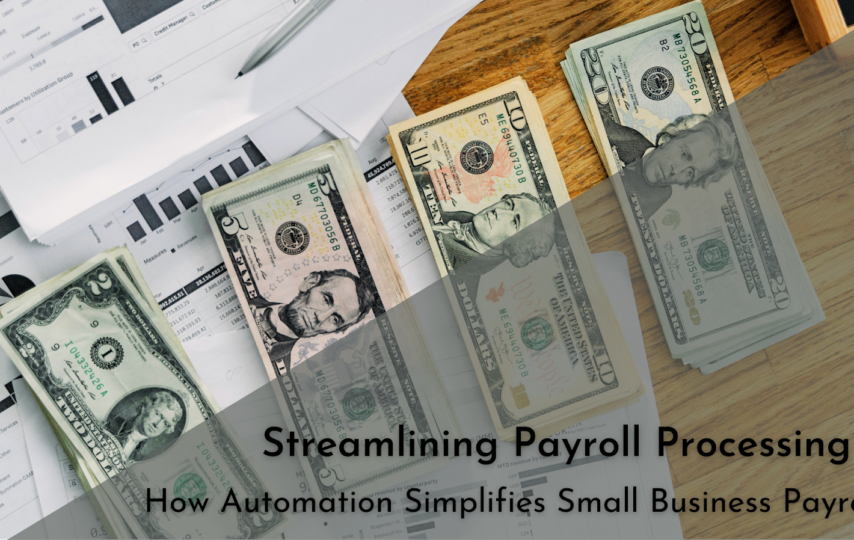Small businesses face numerous challenges, from daily operations to financial management. Payroll processing adds to the complexity. But for businesses with hourly employees, it becomes even more difficult.
Enter automation. It simplifies payroll processing, offering efficiency and accuracy. Automation tools save time and costs, allowing owners to focus on core activities.
This article will explore the benefits of automation for small businesses handling hourly employees. We’ll discuss their challenges and highlight key features of automated payroll systems. Additionally, we’ll provide implementation best practices.
Ultimately, you’ll understand how automation can revolutionize your small business’s payroll operations. Let’s begin this journey of simplification and transformation together.
The Importance of Streamlining Payroll Processing
Efficient payroll processing is crucial for small businesses. This is to maintain smooth operations and ensure employee satisfaction. By streamlining payroll processing through the use of payroll software, businesses can unlock several key benefits:
- Time and Cost Savings
- Processing payroll manually takes a lot of time and is prone to mistakes.
- Payroll software automates repetitive tasks. This includes calculating wages and deductions, saving valuable time.
- Automation reduces the need for manual data entry, minimizing the risk of errors and costly mistakes.
- Accuracy and Compliance
- Accurate payroll processing is essential to maintain employee trust and comply with labor laws and regulations.
- Accurate payroll processing is essential. This is to maintain employee trust and comply with labor laws and regulations.
- Automated systems also help businesses stay updated with changing labor laws. This is to avoid penalties and legal issues.
- Increased Effectiveness
- Payroll software simplifies the payroll process. It includes time tracking and producing payslips and reports.
- Manual paperwork and computations are no longer necessary. This frees resources for more important activities.
- Businesses may manage payroll operations more quickly, effectively, and precisely using automation.
- Enhanced Workplace Experience
- Employee morale and satisfaction are increased by timely and accurate payroll processing.
- Employees may easily view their payment information thanks to payroll software, which encourages openness and trust.
- Automated processes can make it easier for workers to receive their payments through direct deposit. For small businesses, it is important to implement payroll software This helps save time and money. It also ensures accuracy and compliance. They also improve efficiency and create a better experience for employees.
Embracing automation in payroll processing empowers businesses to focus on growth and productivity. At the same time, minimizing errors and administrative burdens.
Understanding Small Business Payroll Needs
Managing payroll for small businesses that handle hourly employees comes with its own set of unique challenges.
Businesses can tailor their payroll processes and solutions by understanding these needs. Here are key aspects to consider:
Flexibility in Employee Hours:
- Hourly employees often have varying schedules and work hours.
- Payroll systems should accommodate flexible hours, ensuring accurate and fair compensation for hours worked.
- Automated scheduling and time-tracking tools can help businesses efficiently manage these fluctuations.
Compliance With Labor Laws:
- Small businesses must adhere to labor laws regarding wages, overtime, and other employment regulations.
- Payroll solutions should incorporate features that automatically calculate compliance with these laws.
- By staying current with legal requirements, businesses can avoid penalties and maintain good employee relations.
Key Features of Automated Payroll Systems
Automated payroll systems offer a range of key features designed to streamline payroll processing for small businesses handling hourly employees.
These features simplify the payroll process and enhance accuracy and efficiency. Here are some essential features of automated payroll systems:
Employee Time Tracking and Attendance Management:
- Automated payroll systems integrate with time clock software, allowing businesses to track employee hours accurately.
- These systems capture clock-in and clock-out times, breaks, and other attendance details, eliminating manual tracking.
- Accurate time tracking ensures precise calculation of wages, minimizing errors and disputes.
Seamless Integration With Scheduling Tools:
- Integration with employee scheduling tools allows for smooth coordination between scheduling and payroll processing coordination.
- Automated systems sync employee schedules, ensuring accurate calculation of worked hours.
- This integration eliminates the need for manual data entry and simplifies payroll calculations.
Automated Calculation of Wages and Deductions:
- Payroll software automates wage calculations based on employee hours and predefined pay rates.
- It considers overtime, shift differentials, and other factors, ensuring accurate and consistent payroll calculations.
- The system also handles tax deductions, benefits, and other payroll-related deductions, reducing manual effort.
Generation of Accurate Payroll Reports:
- Automated payroll systems generate comprehensive reports, providing businesses with clear insights into payroll data.
- These reports include employee earnings, tax withholdings, deductions, and other relevant information.
- Detailed reports enable businesses to analyze payroll trends, make informed decisions, and meet reporting requirements.
Small businesses can simplify their payroll processes. It can enhance efficiency by leveraging these key features.
Employee time tracking is a helpful tool that enables businesses to record the hours employees work. Seamless scheduling integration makes it easy for businesses to coordinate employee schedules with payroll processing. Automated wage calculations ensure that wages are calculated accurately and without any errors. Comprehensive payroll reports offer valuable insights and information. It assists in making better decisions regarding payroll. Each of these features plays a significant role in improving payroll accuracy and efficiency for businesses.
These features contribute to accuracy and reduce manual effort. It also provides businesses with the necessary data for making informed decisions.
Automated payroll systems empower businesses to streamline their operations. By automating payroll processes, businesses can save time and resources. Hence, allowing them to focus on their core business activities and priorities.
Implementing Automation in Small Business Payroll Processing
Implementing automation in small business payroll processing requires careful planning and execution. Businesses can successfully transition to automated payroll systems by following a systematic approach. Here are key steps to consider:
Evaluate Business Needs and Select the Right Software:
- Assess your payroll requirements, considering the number of employees, payroll complexity, and budget.
- Research and compare different payroll software options, ensuring they align with your business needs.








